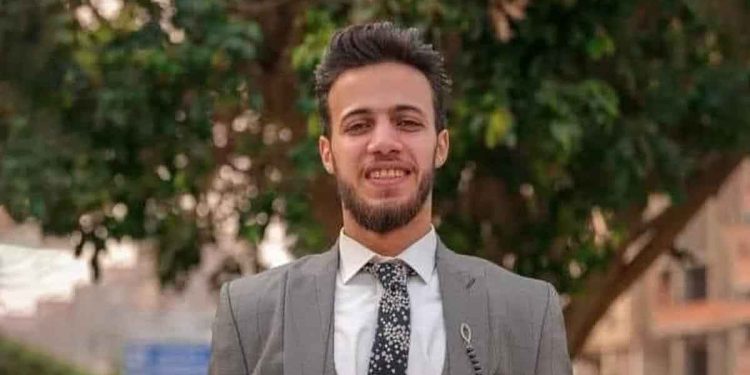The Egyptian authorities continue to enforce the disappearance of activist Ahmed Hamdi Al-Sayed Suleiman, also known as “Gika”, for the 41st day in a row.
Gika disappeared on June 13 after he went to the National Security Center in Shubra Al-Khaima, Qalyubia Governorate, as part of the follow-up investigative policy.
Since then, he has not been released or presented before any investigative authorities, although his family has taken all necessary legal measures to know his fate.
Gika was detained more than once for protesting against the regime’s ceding of the Tiran and Sanafir islands to Saudi Arabia in 2016, in a case known in the media as the “Land” case.
The State Security Prosecution ordered the release of the protesters on bail of 100,000 pounds for each detainee. However, Gika was unable to pay it. He spent three months in jail instead.
Gika was re-arrested again on the sixth anniversary of the January revolution in 2017, along with a group of young men. He was later released after 17 months of imprisonment.
Gika was arrested for the third time and forcibly disappeared in September 2021, after he received a phone call from a National Security personnel in Shubra al-Khaimah to attend the periodic follow-up. He was kept in enforced disappearance for more than a month, until he appeared before the State Security Prosecution to face new charges.
Following his release, the National Security Agency imposed a follow-up period against him.
Since then, he has not been involved in any political activism except for football.
Since President Abdel Fattah El-Sisi came to power; the Egyptian authorities have waged an unprecedented crackdown campaign on opponents and critics, arresting thousands of them under politically motivated charges, many of whom have been convicted and sentenced in unfair trials, or have been detained without trial for years on fabricated terrorism-related charges amid poor detention conditions.
There are currently more than 65,000 political prisoners in Egyptian jails, including women, elderly, and minors. Most of them were subjected to forced disappearance, torture, and other cruel ill-treatment.





























